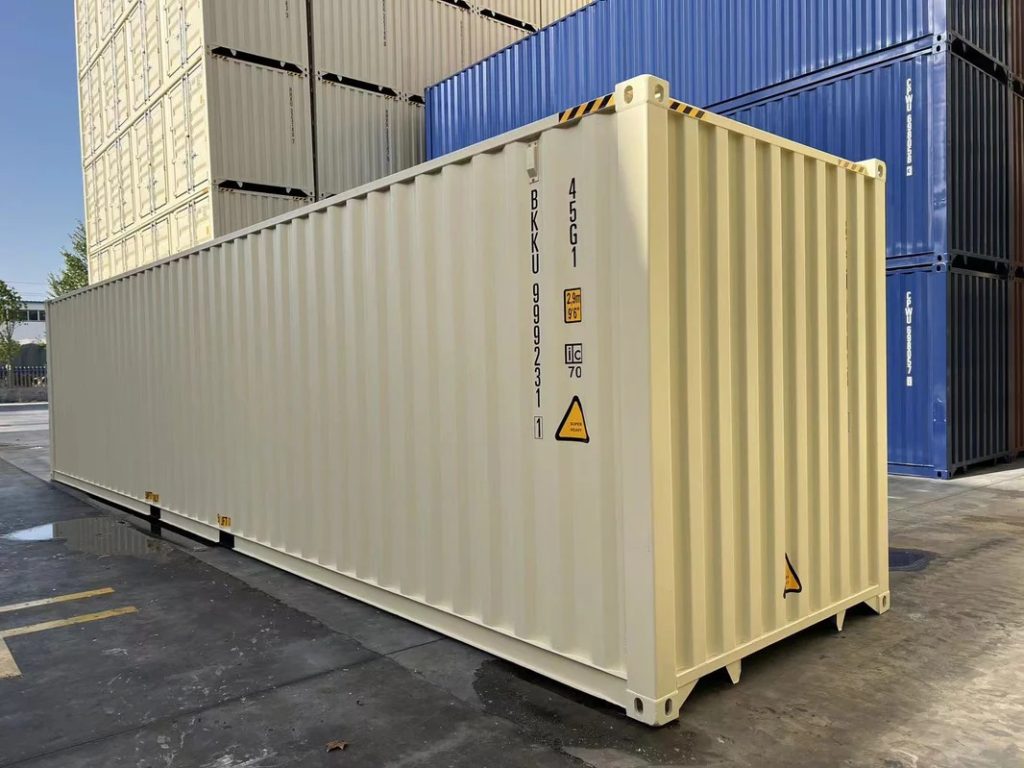Understanding Shipping Container Depots: The Backbone of Modern Logistics
As global trade continues to expand, the significance of efficient shipping and logistics has grown significantly. Among the myriad parts that make up this complex network, shipping container depots play a vital role. These centers are essential for the storage, repair, and management of shipping containers, serving as hubs that improve the flow of items throughout international borders. This article looks into what shipping container depots are, their functions, advantages, and difficulties, while providing a detailed summary of their significance in the supply chain.
What is a Shipping Container Depot?
A shipping container depot is a facility designed to handle the intake, storage, upkeep, and dispatch of shipping containers. Evoking pictures of huge outside spaces filled with vibrant containers, depots are vital in helping with the effective motion of items and supporting the global maritime logistics industry.
Functions of Shipping Container Depots
| Function | Description |
|---|---|
| Storage | Supplies a protected area for unused shipping containers waiting for deployment. |
| Repairs and Maintenance | Deals services to repair damaged containers, guaranteeing they fulfill safety and compliance standards. |
| Container Management | Handles the stock and movement of containers, including tracking and maintenance schedules. |
| Transportation Services | Coordinates the transport of containers to and from shipping ports and other transportation centers. |
| Customizeds and Inspection Services | Collaborates with custom-mades authorities to facilitate the assessment and clearance of containers. |
Significance of Shipping Container Depots
Shipping container depots not only enable affordable logistics however also enhance operational performance and safety within the supply chain. Let's explore their significance further:
- Enhanced Efficiency: By centralizing container management, depots reduce the time required for transportation and dispatch, causing faster turn-around times.
- Resource Optimization: Depot services can cause better implementation of shipping containers in addition to the reliable usage of area and resources.
- Safety and Compliance: With devoted repair work centers, depots make sure that containers are compliant with security guidelines before they are delivered.
- Cost Savings: Effective management at depots can lead to lower transportation and storage costs, supplying considerable cost savings for shipping companies.
- Regional Economic Impact: Depots often produce tasks and contribute to regional economies by drawing in businesses and shipping activity.
Key Considerations for Shipping Container Depots
When handling a shipping container depot, a number of aspects need to be considered to guarantee smooth operations:
1. Location
The proximity to major shipping ports, highways, and railways is essential. A well-situated depot reduces transport time for incoming and outgoing containers.
2. Capacity and Type of Storage
Depots require to assess the variety of containers they can accommodate, including standard intermodal containers and specialized containers for particular cargo.
3. Technology Utilization
Implementing sophisticated inventory tracking systems (like RFID and GPS) streamlines the process of container management, boosts security, and minimizes human mistake.
4. Compliance and Safety Standards
Abiding by local and international security standards ensures that containers are effectively preserved and reduces the threat of mishaps.
5. Labor force Training
Buying worker training is necessary for ensuring that personnel are knowledgeable about container management, safety procedures, and repair work procedures.
Shipping Container Depot Challenges
While the importance of shipping container depots can not be overstated, they do face several difficulties:
- Container Shortages: Fluctuations in international shipping demands can result in container scarcities, straining depot operations.
- Maintenance Costs: Upkeep of containers can end up being a significant expenditure, especially for older or damaged systems.
- Regulatory Compliance: Navigating the complexities of both regional and worldwide guidelines can be overwhelming and requires constant caution.
- Environmental Impact: Managing waste and making sure eco-friendly operations is becoming increasingly vital for depots in a world focused on sustainability.
FAQs about Shipping Container Depots
Q1: How do shipping container depots differ from shipping ports?A: Shipping container depots focus on the storage, repair work, and management of shipping containers, while shipping ports are where vessels dock to load and dump cargo. Q2: What types of containers are generally discoveredin a depot?A: Common containers consist of basic intermodal containers, refrigerated containers (reefer ), tank containers, and flat racks. Q3: Who runs shipping container depots?A: Depots can be run by
shipping lines, third-party logistics providers, or independent depot business concentrating on container management. Q4: Can I acquire a shipping container from a depot?A: Many depots offer used containers, which can be repurposed for different applications, including storage, housing, or transportation requirements. Q5: What crucial metrics are used to determine the performance of a shipping container depot?A: Performance can be determined through metrics like container turn-around time, storage density, upkeep costs, and functional efficiency rates. Shipping container depots are a linchpin in the world of
maritime logistics. Sea Containers -- from storage and management to fix and compliance-- make sure that the huge network of worldwide trade operates efficiently. As trends in e-commerce and international trade progress, the role of shipping container depots will just continue to grow, shaping the future of logistics. Enhancing their operations, attending to difficulties, and adjusting to industry changes will be essential for keeping efficiency in the supply chain and meeting the demands of a worldwide economy. Understanding shipping container depots will empower stakeholders across industries to make informed decisions while contributing to a more effective and resilient logistics structure.

